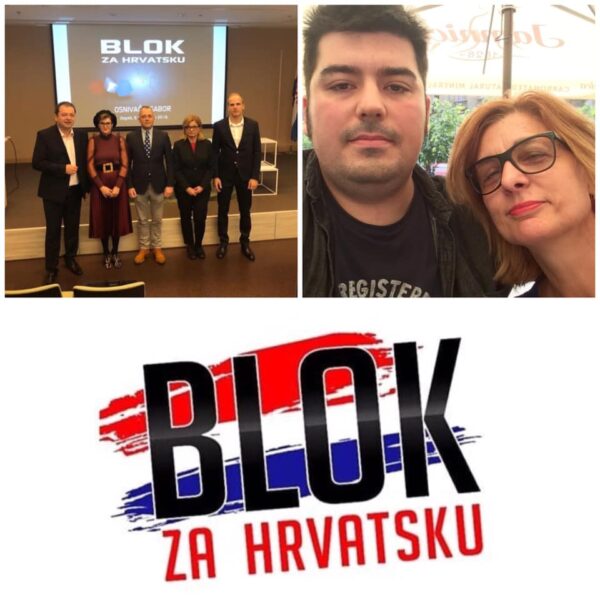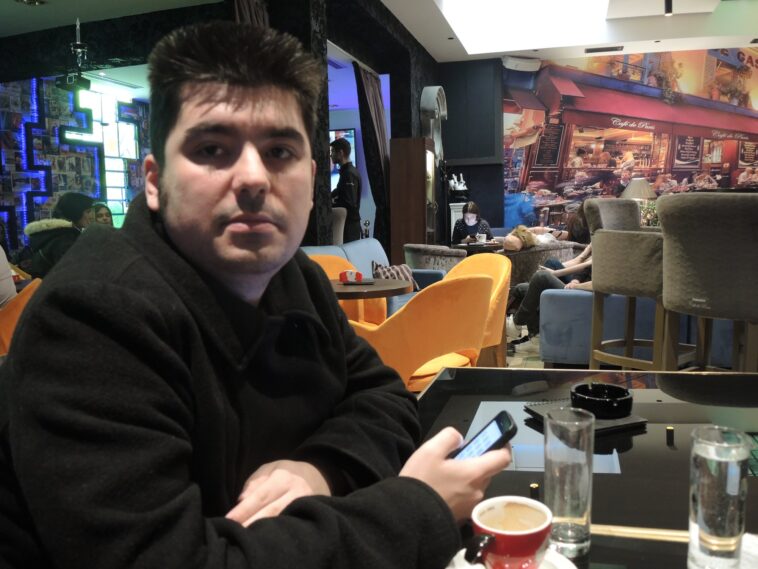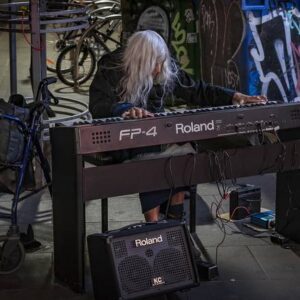The most comprehensive post-election quantitative analysis commissioned by the European Parliament in June 2019 shows that the higher turnout at polling stations across the EU is the result of greater interest from young voters. Citizens under the age of 25 (+ 14%) and those between the ages of 25 and 39 (+ 12%) went to the polls in large numbers. In Croatia, an increase of 5 percentage points was recorded in both age groups (18% turnout of young people up to 24 years of age, 25% turnout of young people in the group of 25-39 years old).
The fact that young people in Croatia, overall, are relatively disinterested and largely abstain from voting in elections, whether they live in Croatia or have emigrated in the past decade in enormous numbers, is a concern particularly because the future, which is theirs more than anybody else’s, is likely not to be the way they would want it unless they engage more. The relatively low levels of interest (closely estimated around 10 to 25% in 2019/2020 presidential/general elections in Croatia) in the young people to vote or become politically engaged are largely a sign of protest against alarmingly pervasive corruption and nepotism in Croatia. Various sources point to a prevalence of reasoning that there is no use in voting because nothing ever changes. This points to an unhealthy environment filled with disappointment and anger at the seeming helplessness of individual citizens, including the young, to change things for the better or to their needs. There are politicians in Croatia that claim that turnout of young people at elections will increase dramatically once trust in the political and other establishments is returned to them! Without actual involvement and engagement of the young within political parties this trust established politicians talk about will not be restored.
Young people need to “own” the process of change and restoration of trust by being and active part of that change.

Millennials–born between 1981 and 1996–are already the largest living generation and the largest age group in the workforce, they are followed by Generation Z (post-Millennials) – born between 1997 and 2012 – who are the largest living generation in the education system that should largely develop and encourage critical thinking aimed at their surrounds, at the world and its political and economic course. Startups largely associated with the Millennials have revolutionised economies throughout the world although in Croatia they still remain the pursuit of individuals rather than a focused government strategy. Their tastes and appreciation of differences are shifting the culture, and their enormous appetite for social media has transformed human interaction. Politics is the next arena ripe for disruption and rectification of that which stifles progress of the world they live in.
If a generation shift in young people’s political culture is not taking place, which makes their views and expectations different to those of previous generations, it should be. It is the Millennials and Generation Z that will clarify and assert the role of politics in everyday life. I feel certain of that. It is these generations that will demonstrate that politics should simply mean strategies and actions that create equal opportunities for all or, at least, those that want to take advance of those opportunities both personally and nationally. We see in these younger generations a greater participation in issue-led, rather than ideological, politics and a concern with issues such as the environment, animal rights, pro-life vs. pro-choice, criminal justice reforms, and so on. Issue-led participation in politics overwhelmingly home in on matters that matter on the ground, in everyday life, in immediate surrounds. Hence, this approach to politics has a significant potential in reviving the sense of patriotism lost through decades of materialistic pursuits on the individual level. This more than anything is important in a country like Croatia, which is still after 30 years struggling to fully transition out of the communist regime it was locked into for 50 years in former Yugoslavia.
And the Millennial coupled with the elder members of Generation Z are coming to Croatia as well as to the rest of the world; the only questions remain are when and how fast will they arrive to take significant hold of the rudder that steers Croatia’s foreseeable future.
On Facebook social media on 9 November, I came across a status post that attracted my attention in the context of young people gaging active interest in political developments in Croatia. It was the Facebook profile of a young man from Zagreb, Ludwig Radic and he titled his post “The only light in the darkness of Croatian politics” and the post goes like this:
“THE ONLY LIGHT IN THE DARKNESS OF CROATIAN POLITICS
On this day exactly one year ago a party was founded ‘Block for Croatia’ (Blok za Hrvatsku), which I joined in August this year.
Why the Block for Croatia?
The answer is very simple. When I was politically engaged, I always aspired to ideals, which do not exist at all in mainstream parties. However, in 2016, two people emerged who awakened hope in many to return to a consistent policy. These are the former Minister of Culture, Dr. Zlatko Hasanbegovic and his deputy Dr. Ana Lederer. Many who until then did not want to go to the polls saw a new patriotic icon in the form of Zlatko Hasanbegovic.
The first serious collaboration with these people followed the next year during local elections, when we built the Croatian patriotic option in Zagreb together. These people brought to our Croatia something that has long been forgotten and written off in Croatian politics – authenticity. It is currently the highest quality brand within the Croatian right-wing electorate.
The Block for Croatia was formed in extremely difficult circumstances, under a media blockade and the ‘fire’ of some individuals who really believed that our party would not last even a month. Regardless of these circumstances, thanks to the authenticity and consistent policy, we showed our strength in the parliamentary elections in 2020, when Zlatko Hasanbegovic sovereignly entered the Croatian Parliament, even though the entire political mainstream was convinced that his political death was coming. Personally, I think that the establishment and work of the Block can be characterised by the immortal words of the British statesman Winston Churchill ‘blood, sweat and tears’.
The strength of the Block for Croatia lies precisely in its members. These are people who are not classic politicians or demagogues who earn political points on the misery and distress of the suffering Croatian people. On the contrary, we have people who have earned their ‘rating’ solely through hard work, as university professors, literary critics, lawyers, and then as ministers and government officials. It is worth emphasising the fact that the Block for Croatia gives a hand to young people without attached strings, who exclusively want to contribute to the prosperity of our homeland Croatia. When I look at all the circumstances and facts, it was not difficult to make a decision to join the Block. With my experience gained so far, I will help the Block for Croatia to continue on the winning path as before.
I repeat, this is the only light in the darkness of Croatian politics, and our prominent members of the party have proven it with their work so far. I am proud to be a part of this story and I believe we will be even stronger in the future!”
I thought the above to be a wonderfully enlightening article as to how some young people in Croatia think, act and carve their path into democratic engagement. There should be much more of this in the coming decade if Croatia will develop into a full democracy. Generally, young people are not confident when it comes to participating in the democratic process — and that’s probably contributing to their disengagement from electoral politics. That is, some young people do not actually know how to decide which political party best reflects their views or understand that politics are not a pursuit separated from living standards and life of people in the country.
Croatia should do more to equip young people to have that confidence to participate in the democratic process, especially when they leave school. That is the only way in generating trust in democracy or restoring the lost one. After all, half of Croatia’s Millennial and all of Croatia’s Generation Z are born after Croatia seceded from the communist Yugoslavia regime and developing democracy in Croatia during the decades after the complete end of the Homeland War in 1998, has been contaminated and stifled by the stubborn remnants of communist regime inheritance. While, fortunately, there are many young people like Ludwig Radic in Croatia asserting their engagement in the political arena their presence, or indeed their impetus still need a higher level of relevance in both pre-election platforms and public office.
Young voters in Croatia can play a crucial role in deciding who wins and who loses an election, helping to shape politics, realpolitik and the Croatian nation for decades to come. With the current political confusion and instability in Croatia, with new general elections and presidential elections due in a handful of years’ time, there is no better time to consider issues concerning the involvement of young people in politics and to reflect on the ways in which the existing systems can encourage them to participate more competently and confidently in the Croatian democratic process and hence, give a boost to an eventual full democracy outcome. Certainly, the mass exodus of young people from Croatia because of the ineffective political platforms in power is a strong motivating force for realpolitik change where this trend of looking outside of Croatia rather than within for a decent livelihood could be reversed. Ina Vukic




